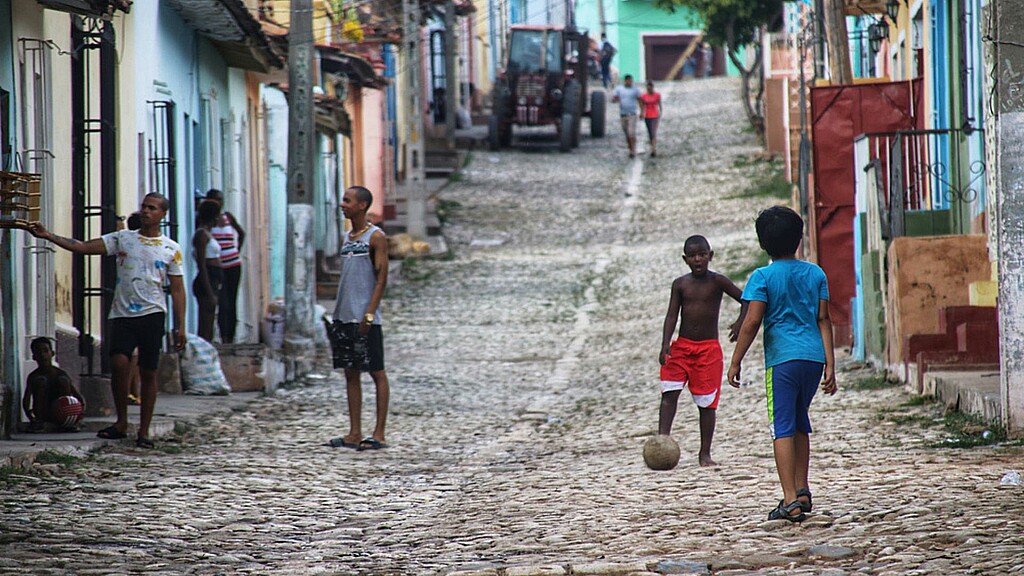Opinion & Reviews
OPINION: Repentance, forgiveness and reconciliation in Cuba?
Today, the entire Cuban reality can be summed up in three words: protests, hunger and repression

March 29, 2022 2:05pm
Updated: May 4, 2023 11:16am
Forgiveness is one of the most difficult ethical and moral values to achieve.
Indeed, during the presentation of the passionate novel "Letters to Pedro" by Cuban intellectual Janisset Rivero -- which is a historical memory of heroism and cruelty -- the theme of forgiveness was often raised. Throughout the book, it was analyzed with lucid vehemence and heartbreaking testimonies by individuals who suffered in the torture chambers of Cuba’s bloody dictatorship. Today, those same cells are populated by hundreds of young Cubans who were brave enough to participate in the popular July 11, 2021 mass protests, where thousands took to the streets to demand “change and freedom.”
Today, the entire Cuban reality can be summed up in three words: protests, hunger and repression.
At this historical juncture, there is little room for forgiveness. This is the major premise of the Cuban collective experience and it reminds us of the proverb that says, “If you understand reality, this is how it is. If you don’t, this is how it is.”
The debate on forgiveness in the midst of the brutal repression in Cuba today is tantamount to demanding the flight of a bird without wings, because forgiveness requires the aggressor to repent before the victim. Even Jesus’ divine word urges us to find the radiant sweetness of forgiveness by following the narrow path of repentance. In this way, it is possible to achieve the reconciliation that completes the cycle of forgiveness.
The Miserere, based on Psalm 51, is a composition created by Gregorio Allegri in the 17th century – and is also known as the Psalm of David in the Old Testament. In the Miserere, the transcendent sense is collected in the process of forgiveness.
In a word, it says, “I recognize my crime... wash me thoroughly my guilt... by your immense tenderness erase my crime.”
The Catholic Church’s code of canon law, after all, demands the strict process of repentence be observed before true forgiveness be achieved.
At the end of the day, this is the reality facing many Cubans: protests, hunger and repression.
Sixty years of tyranny have seen little change. The dictatorship’s brutal strongmen refuse to admit their crimes and ask for forgiveness. The rebellion carried out by courageous youth that took to the streets of Cuba made this a matter of historic importance. The failure of the Marxist-Leninist revolution demands unpostponable changes. A necessary change that is projected in hip-hop music and through the words of the many “bloggers” who successfully collect and disseminate accurate sources of information in order to counter the regime’s official narrative.
The rebellion in Cuba is irreversible because it comes in response to countless dreams of freedom that have manifested themselves on the streets of cities and towns across the island. Because the dictatorship refuses to give up power, it is clear it will not take the necessary steps towards reconciliation: recognizing the crime (the imposition of communism in Cuba), admitting guilt and asking for forgiveness.
"Reality is like this" although the tyrants insist that the dogma of "scientific" communism is infallible. Cuba is a powder keg of discontent and rebellion. A pathetic end to the revolution that could not give Cubans a single day of freedom.
What Cuba needs is new life, clean, full of ideals of social justice, young people capable of generating a rebirth of hope in a free country where all citizens have the right to dissent without fear of reprisals from intolerant dogmas.
The path of forgiveness goes through repentance and can achieve reconciliation, but above all, it has a chance to succeed if new generations do not have to demand reconciliation. This is the sad state of affairs on Fidel Castro’s island of misery.
* This piece was originally published by The Cuban Center for Strategic Studies






